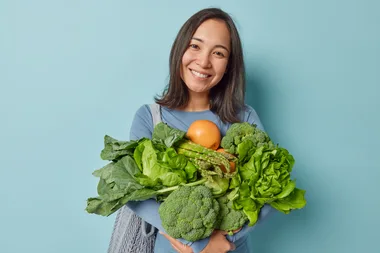**I have a great diet. I eat lots of veggies and legumes, low-fat products, lean meat, fish and everything else you say we should eat but I still don’t seem to be able to lose any weight. Do you have any suggestions with regards to what I might be doing wrong?
Gail, Gosford**
With a healthier diet you can eat more food than if you were eating lots of packaged processed foods but you still do have to control how much you eat if weight loss is your goal. While it might be annoying to have to measure everything, it’s worth doing it for a few weeks until you instinctively know when you’ve served enough on your plate. Other than green leafy vegetables, which you can eat in copious amounts, there are no foods that should be eaten in excess.
Firstly, let’s look at what comprises a healthy diet:
Wholegrains and legumes to ensure we consume the necessary amount of fibre and required B vitamins each day.
Five serves of veggies and two of fruit to ensure we consume enough antioxidants, vitamins, folate, and soluble fibre.
Lean protein for satiety and cellular and muscle repair.
Good fats for brain food, protection of internal organs and to protect the heart.
Sufficient amounts of the foods that contain calcium, iron, zinc and all the other minerals we must eat to keep our bones strong, mend wounds and give us enough energy to function each day.
It’s easy to do all this with a healthy diet but not so easy to do it when you want to lose weight at the same time.
To lose weight you should aim to restrict your kilojoule intake to approx 6000kj (no lower than 5500).
A typical healthy day’s intake on a kilojoule restriction of 6000kj:










